Good, reliable roommates are hard to find, but bad ones seem to grow incredibly abundantly. One good way to tell who is who is to take a look at their hygiene and cleaning habits. Anyone worth living with will care about themselves, their environment, and the people living in the building.
Redditor u/alecx-mr recently shared on the r/badroommates subreddit how they tried to fight against a sneaky moth epidemic in their flat. Their roommate, however, thought that they were overreacting, only to quickly realize how much she messed up by failing to lend a hand. Read on for the full story about how karma can suddenly grow wings.
Though mostly harmless, moths can ruin your clothes and contaminate your food
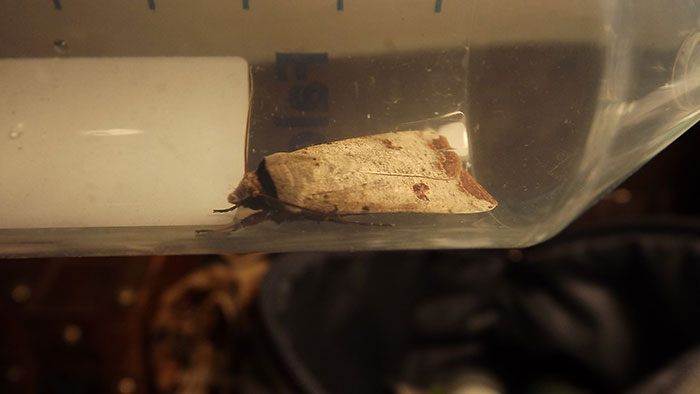
Image credits: Michael Mulqueen (not the actual photo)
A person shared how they tried to deal with an infestation at home, and how their roommate refused to help

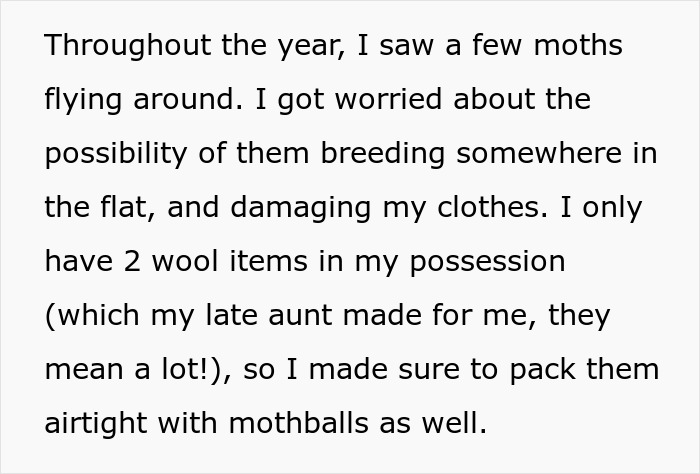
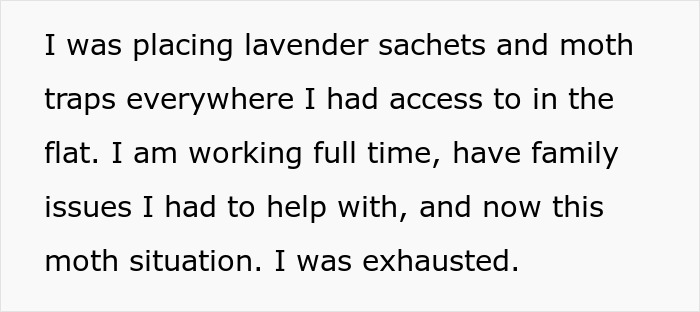
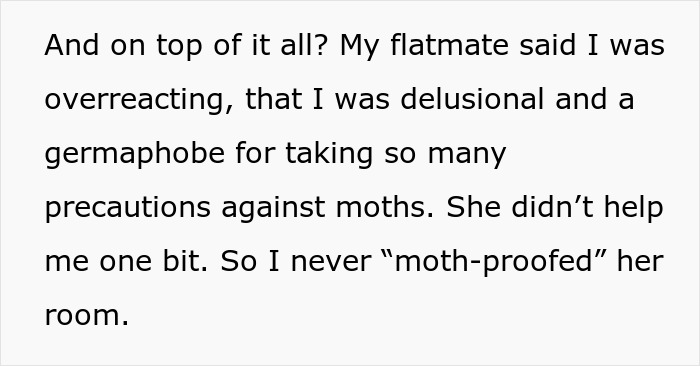
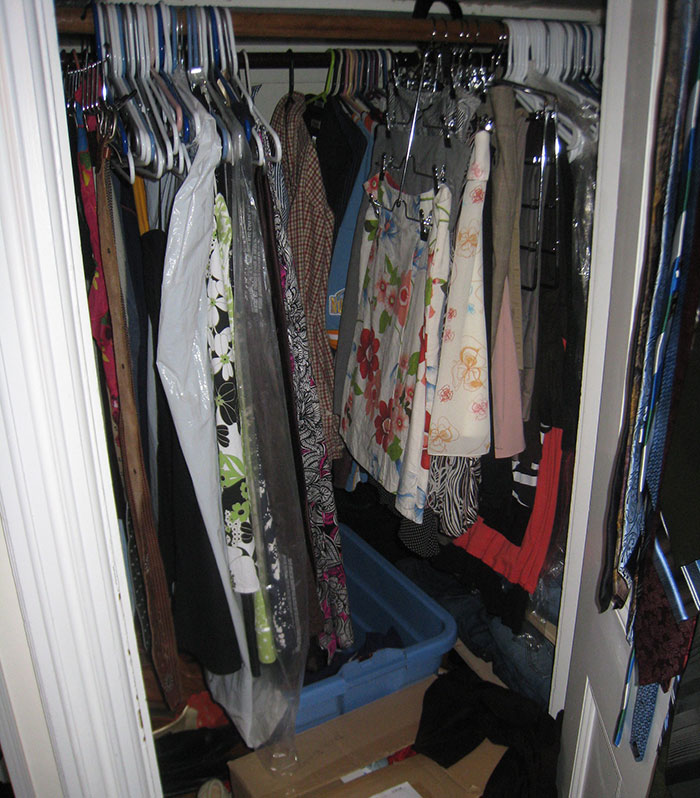
Image credits: Michelle (not the actual photo)

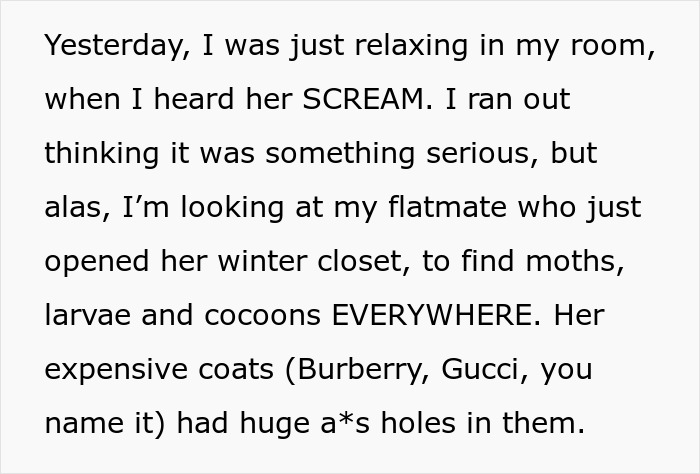
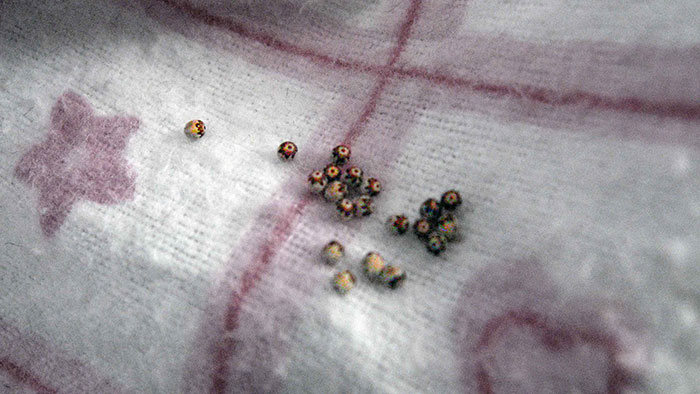
Image credits: Eva (not the actual photo)
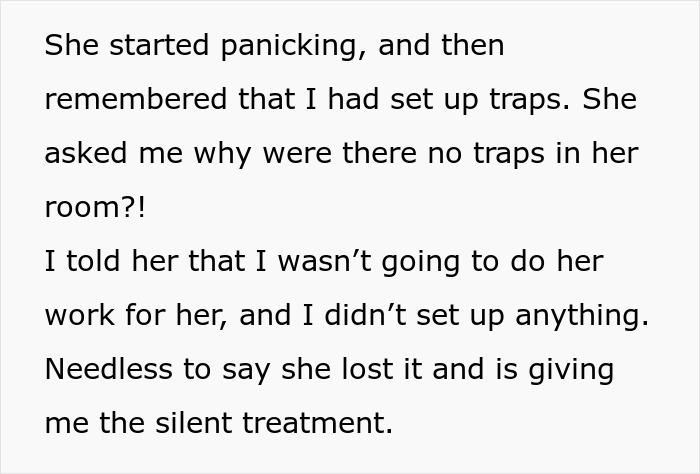


Image credits: u/alecx-mr
Living with responsible roommates who like cleanliness is a godsend. The opposite is also true

Image credits: cottonbro studio (not the actual photo)
The OP shared how they did everything that they could to ward off the moths. Unfortunately, their flatmate was less than willing to help. She told the redditor that they were overreacting and being delusional to take so many precautions.
That’s why the Reddit user never bothered to moth-proof her room. Fast forward a bit and u/alecx-mr’s roommate soon learned the consequences her words had. After opening her winter closet, she realized that there was a huge infestation of moths there. They’d ruined a bunch of her expensive clothes.
The author of the post revealed that they’re willing to help their roommate out now that they saw the importance of moth-proofing the entire flat. However, the OP added that they’re looking for a better place to live by the end of the year. Hopefully, with more responsible, communicative roommates.
Moths adore dark spaces where they lay eggs and look for food, so they’re most often found in closets, pantries, basements, and attics. Though they’re mostly harmless, they can ruin your clothes and food. Not to mention that probably nobody (barring the most enlightened nature-friendly folks) wants to live with hundreds of insects swarming inside their home.
First of all, you need to figure out what kinds of moths you’re dealing with. There are two common types
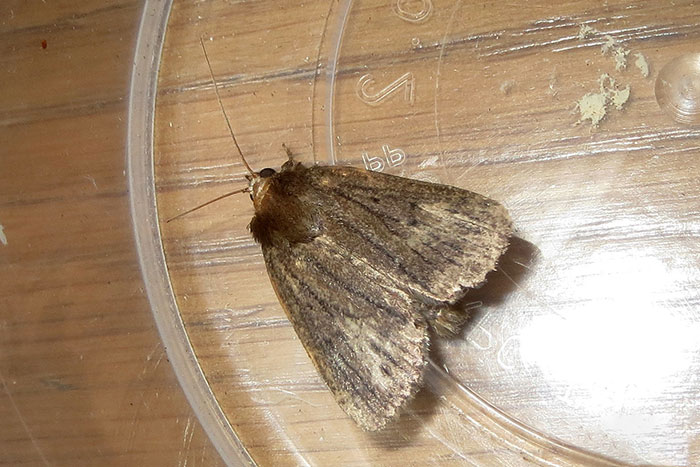
Image credits: David Short (not the actual photo)
‘Good Housekeeping’ suggests starting off by figuring out what kind of critters have invaded your home, whether they’re clothes or pantry (aka flour) moths. The former “swarm your linens and wardrobe,” while the latter breed in kitchens.
Clothes moths mainly subsist on natural fibers, though can also eat through synthetic fabrics to get to a food source, according to Carolyn Forté, the executive director of the Home Care & Cleaning Lab at the Good Housekeeping Institute.
“That’s why it’s imperative to clean your clothes before storing them. Even stains you can’t see, like perspiration or clear drinks, can oxidize over time in storage and attract insects,” she explains. Clothes moths can get into your home on the clothes you bring in, especially if they’re secondhand, or by working their way into the building through cracks and open windows.
In the meantime, pantry moths eat grains and dry goods such as cereals, crackers, and rice. In short—they love stored foods. They can be found in the food that you buy if it comes from moth-contaminated warehouses and factories. If you find caterpillars or webbing in your food, it’s a sign that the moth pupae and larvae are at work.
Long story short, start off by throwing out all the infested materials and food. Just yeet it all out of the house as soon as possible. When it comes to your clothes, however, Forté advises people to wash them with hot water and detergent and then dry them on medium to high heat.
You have to be ready to do some very thorough cleaning and maintain that level of neatness

Image credits: Annushka Ahuja (not the actual photo)
Next, do some deep cleaning. Thoroughly vacuum your home, including your closet, kitchen, carpets, walls, and every tiny little nook and cranny. The more thorough you are, the more likely you are to root out the infestation. Don’t forget to actually throw out the dustbag ASAP. You can also wash the inside of your vacuum cleaner if you want to be very thorough.
In the meantime, scrub all the shelves and walls in your entire home, not just in the contaminated area. If you don’t have any fancy cleaning supplies at hand, you can mix white vinegar with water. However, if the moths keep coming back, you definitely need to get in touch with a professional. Call someone who works in pest control and let them work their magic.
Though mothballs can help, ‘Good Housekeeping’ warns that some of them may contain harmful chemicals like naphthalene or paradichlorobenzene. Check to see whether the product has them before buying them. Not only that, but mothballs also have a distinct smell that far from everyone is a fan of. Yours truly, for example, can’t stand it.
A good alternative is sealing your seasonal clothing in airtight bags and boxes, and storing them somewhere that isn’t entirely dark, hot, and humid. Meanwhile, store your food in airtight glass or hard plastic containers. This’ll keep the moths out, as well as any ants and cockroaches who live in the neighborhood.
Meanwhile, you may want to consider using cedar chips and moth traps to weed out the local insect population. Though if truth be told, none of these solutions will work if you’re living with roommates who aren’t even aware that they have an infestation right under their noses.
The author shared some more information in the comments of their post

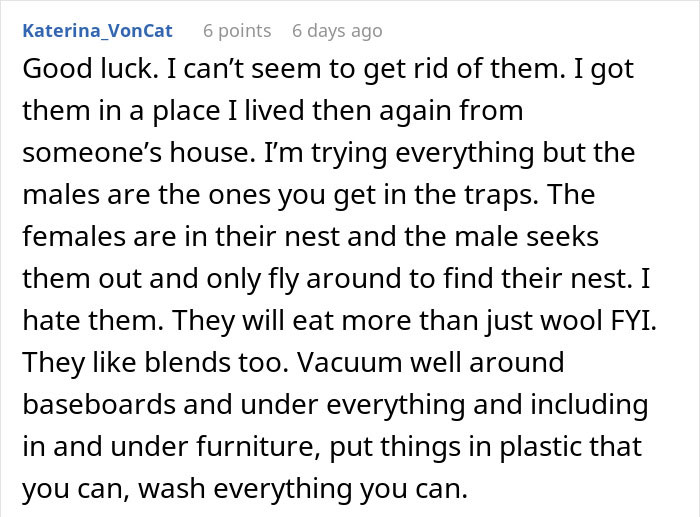
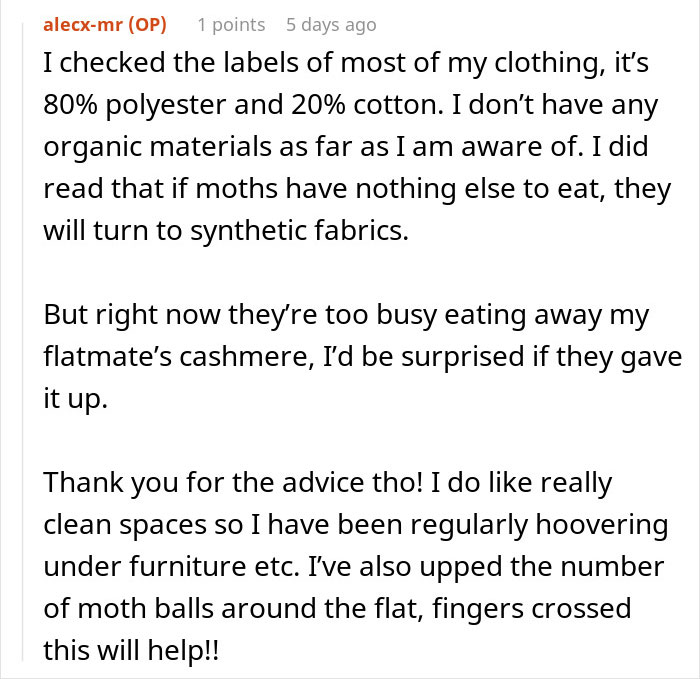
Here’s how some other readers responded after they read the story





from Bored Panda https://ift.tt/cRxAeqr
via Boredpanda